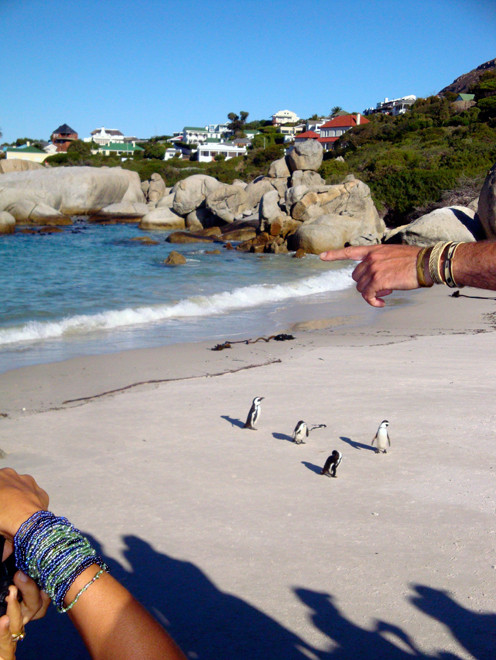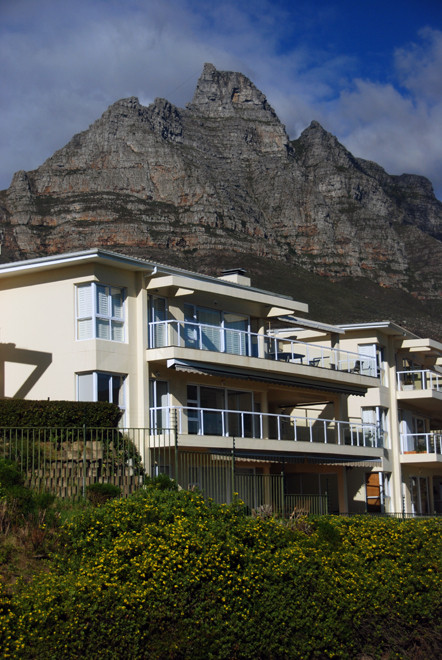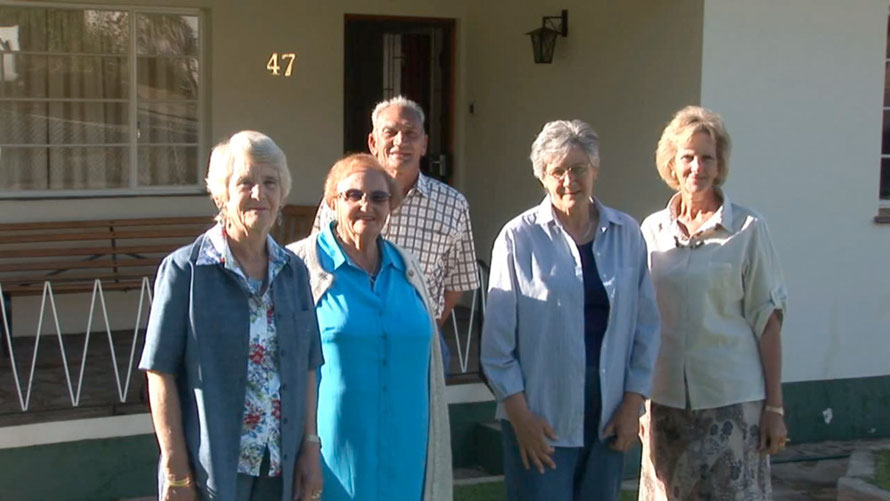Being White in South Africa: Guilt, Reconciliation and Carrying on Regardless

Kevin Bloom - South African author of Ways of Staying - made the following revealing comment in an interview on post-Apartheid identity in 2010 in which he also selected his top five South African books:
I think my generation, by which I mean 25 to 40, I think we need to acknowledge where we stand in South African society and we need to be very careful when we point to the ANC’s faults. Their faults are plenty, but we need to be very careful about how our presence in South Africa contributes to the ANC’s stance. We need to be conscious of how we behave on the streets and temper down our sense of privilege and entitlement. White South Africans have a profound sense of entitlement, it’s in-bred. We need to find our modesty, our humility in the face of our inherited and sometimes unjustified privilege.
I like the things he says about learning humility and toning down the behaviour on the streets. There is a swaggering arrogance that some white South African's have that is astonishing, like the guy driving his open top Maserati round Cape Town. But what, after the 350 year history of White history in South Africa is 'justified privilege'?
On the the Truth and Reconiliation Commission Bloom says,
I think the Truth and Reconciliation Commission was painted in this book [Country of my Skull by Antjie Krog] as a failure. I think that it was a very noble effort and the world is still learning from what happened there. I see it as a failure, though, in the sense that white South Africa didn’t embrace it at all. And they still haven’t embraced it. At the time the Afrikaans newspapers were all saying, ‘Don’t blame us, we refuse to be guilty’.
There was a sort of acknowledgement in the English press, but what they were really doing was pointing at the Afrikaners, which English liberal South Africa has been doing for ever. So there is still this in-fighting among the white community today, rather than a collective acknowledgement about what they are responsible for.
In the Epilogue to the 1999 edition of Country of My Skull Antjie Krog says,
We of the white nation try to work out the conditions for our remaining here. We are here for better or for worse. We want to be here, but we have to accept that we can no longer stay here on our terms. Therefore I prick up my ears and try to hear what the new conditions of my existence are. Taxes. Mbeki mentioned that - the transfer of resources. Is that it? Is he saying: your money will do, but please dear God, spare us your meagre little white souls. p.437
In 1999 Krog concluded that few people believed that the Truth and Reconciliation Commission process had achieved reconciliation. Perhaps this is not surprising looking back from 2012. Krog finished her brave account of the TRC by talking about reconciliation as a process of survival; as a key skill for surviving conflict. More importantly, perhaps, she says, in the last gasp,
Reconciliation is not only a process. It is a cycle that will be repeated many times' p.449
Maybe that is what the director the film Invictus wanted to show the world. That the South African rugby team could visit townships and be shocked and that white people could explore their feelings of guilt and anger and shame. As long as they won the World Cup as well. It worked for me: on the second night of our visit, hungover, it had me sniffing back tears over my pizza.
But there was a real question of reparation that the TRC raised and that was not taken forward. At the final TRC press briefing the few Commissioners from the TRC who turned up said,
We failed the victims. Our biggest regret is that we failed the victims - here we are, three years down the line and the victims still don't have anything. p.433
As a white woman, Krog concluded that white South Africans were trapped with their guilt - or as Kevin Bloom might put it - their 'unjustified privilege':
We are trapped. If there is no forum in which people can think about what they want and others worry about what they owe, then both are trapped in anger and guilt. By not determining precisely what is needed [Germany made reparations to Jews outside the country of $100bn after the Second World War], the whites are exposed to constant reproach. If you give specifics they can be met.
And she continues
And should one not be willing to be available as a punchbag? Can that be part of the deal? Just shut your big mouths when we blame you - for this, after all, is the only bloody thing we ask while rebuilding ourselves, by ourselves. p.438
The scale of White flight from South Africa is difficult to measure. A useful article in The Economist reports estimates that 800,000 of the 4m post-Apartheid Whites left South Africa between 1995 and 2008. Violent crime is the overwhelming, but not exclusive, reason given for leaving. And it is not only Whites who want to emigrate: the desire to leave was up in all racial groups.
But it is the Whites, by and large, who have the money, skills, contacts and sometimes passports they need to start a life outside—and who leave the bigger skills and tax gap behind.
Other reasons cited for leaving in 2008 included power cuts, fears for the constitution and the rule of law, and exasperation with corruption and cronyism. The example of President Robert Mugabe's Zimbabwe over the border has done nothing to allay White fears.
See also this article in The Guardian in 2011 on white farmers expanding northwards from South Africa into other parts of Africa.
The mass movement is mostly organised by Agri South Africa, an association that represents 70,000 South Africa farmers. Its president, Johannes Moller, made a pitch for new deals at a conference on large-scale agriculture in Africa, held in Cairo last April. Since then, Agri SA has received offers of land from 22 African countries, says [Ruth] Hall. Along with free land come tax holidays, free rein to export produce and profits, and promises of new roads and power lines – angering local peasants who have never enjoyed such benefits.
With one-third of South Africa's white-owned farmland to be transferred to black owners by 2014 (a target that wil not be met), many white South African landowners are keen to find new territory, though most want to keep their home farms as well, says Ruth Hall, of the Institute for Poverty, Land and Agrarian Studies (PLAAS) at the University of the Western Cape.
"South Africa is exporting [not just] its farmers, but also its value chains [and values?], to the rest of the continent," she said.





